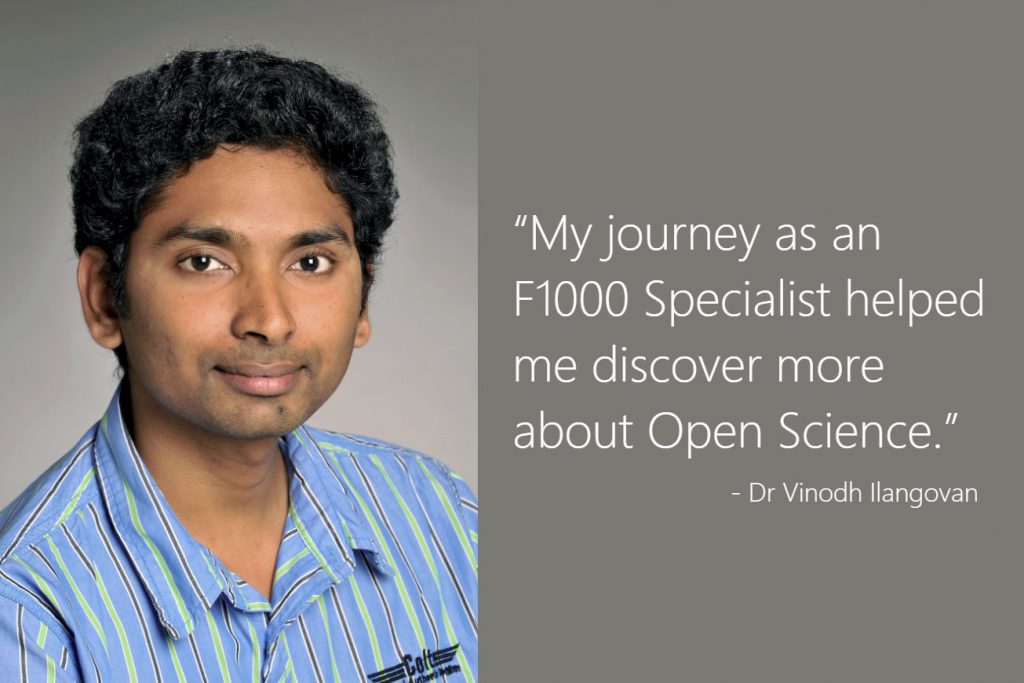"My journey as an F1000 Specialist helped me discover more about Open Science."
| 29 July, 2016 | Admin |
|

|

Vinodh Ilangovan is July’s “F1000 Specialist of the Month”. He currently works as a Graduate Research Fellow in the Department of Genes and Behavior at the Max Planck Institute for Biophysical Chemistry in Goettingen, Germany. In addition to being an F1000 Specialist, he also acts as an Open Access Ambassador at the Max Planck Society.
F1000 Specialists are PhD students, postdocs, clinicians and researchers who help their colleagues use F1000Prime, F1000Workspace and F1000Research, and spread the word about F1000 within their institutes. If you’d like to become an F1000 Specialist yourself, you can sign up here.
What are some things you have done as F1000 Specialist?
It was a wonderful experience to introduce F1000Workspace to my collaborators in order to write a manuscript. I also regularly encourage my colleagues to try F1000Workspace for convenient reference management, since our institute has a subscription. When speaking to senior researchers at conferences, I suggest sharing the slides of their talk on F1000Research. I was elated when a speaker I met at the European Drosophila Research Conference 2015, did just that and published slides from an outreach talk on the platform. I have used my privilege as an F1000 Specialist to discuss open data and open science, antibody validation studies, reproducibility in research and the post-publication open peer review process with my colleagues. My journey as an F1000 Specialist helped me discover more about Open Science.
Do you have any tips or advice for other F1000 Specialists?
Being an F1000 Specialist is a great way to expand networking among researchers in diverse areas. It is important to remind colleagues and collaborators about active institutional subscriptions to F1000 services, and get them introduced if they’re not already aware of them. I find it helpful to discuss the platforms with senior researchers to address regular problems faced in biomedical research, such as reproducibility.
Finally, can you tell us a little bit about your work?
I work on the molecular circuitry of circadian time keeping machinery in the common fruit fly Drosophila. In particular, I am interested in understanding the evolutionary conservation of functional circadian clocks using genetic, behavioral and molecular techniques. As a spin-off, I am also investigating how transcription factors affect sleep in Drosophila. The knowledge about how small perturbations of genetic programs affect overt behavior and physiology will help in devising better strategies to treat sleep disorders and trans-continental jet lag, apart from the implications to general well-being.

|

